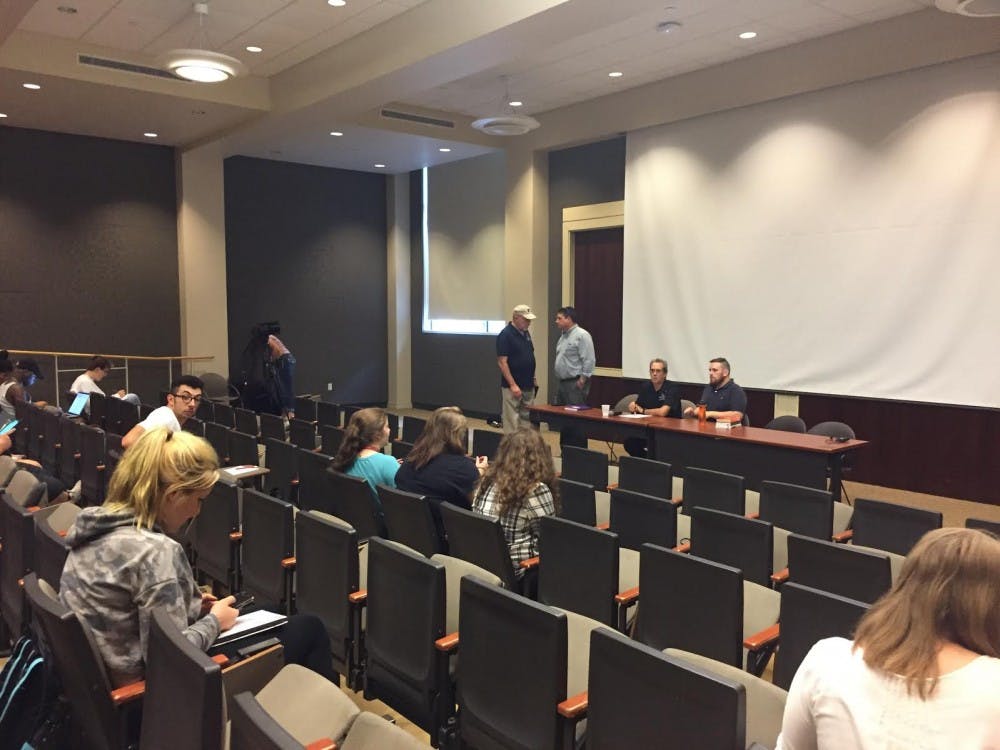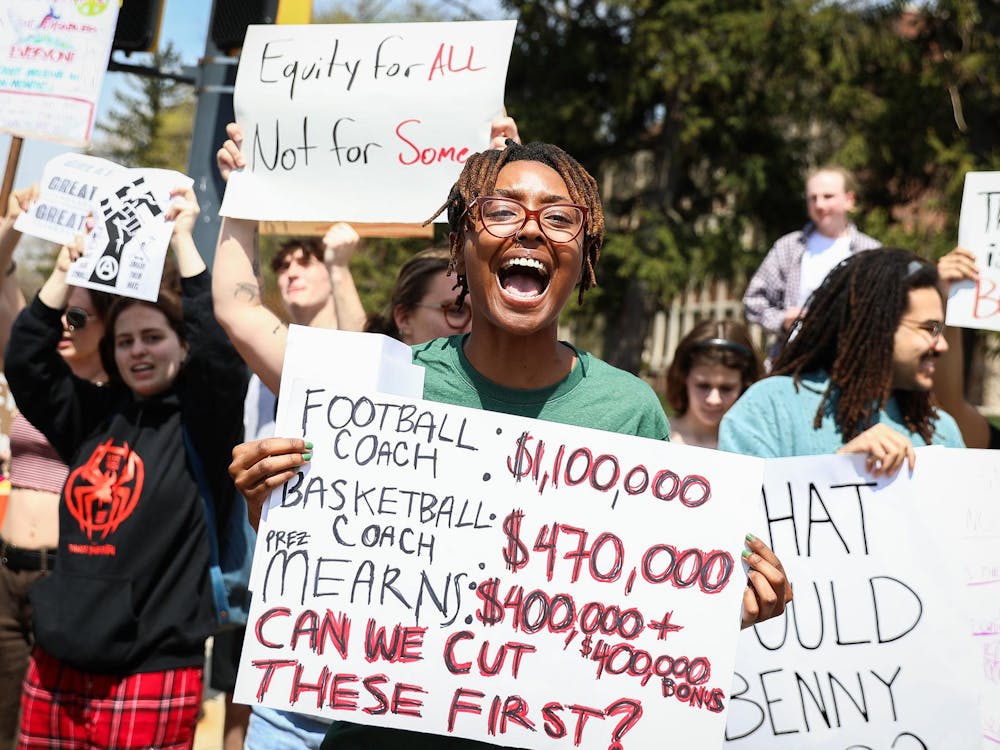Students from Ball State and Anderson University, as well as high school students and Muncie citizens, all attended the panel on The Rise of Neo-Nazism in the Atrium Wednesday.
Held by the Center for Peace and Conflict Studies, the panel discussed the history and repercussions of safely protesting neo-Nazism and white supremacy in the U.S.
The panel was led by speakers Bryan Byers, professor of criminal justice and criminology, and Nate Rose, Ball State alumnus and Reconciliation Achieved through Community Engagement (R.A.C.E.) member.
“These groups [white supremacists and neo-Nazis] are growing, and they have existed for a long time, ” Rose said. “The largest area of growth is in the online culture, typically in the 'alt-right.'”
Hate groups, which white supremacists and neo-Nazis are a part of, have grown significantly in the past few years according to the Southern Poverty Law Center (SPLC). The current total of hate groups is 917 in the U.S. This is about 100 fewer organizations than the 1,018 tallied in 2011, which was the all-time high in the 30 years of SPLC records.
“It is hard to tell how much these groups have grown, because their existence is relatively secret,” Byers said. “They do not want individuals to know how many members there are in their organizations. Many do not keep tally of how many members they have.”
The SPLC breaks down white supremacist groups by category, noting there were 99 neo-Nazi groups, 130 outposts of the Ku Klux Klan, 43 neo-Confederate groups, 78 racist skinhead groups and 100 white nationalist groups.
Rose defined white supremacists and neo-Nazi groups based on their common ideology.
“The one thing that unites most of them is the desire for the white ethno-state,” said Rose. “This is a white homeland similar to Nazi Germany.”
Byers expanded, saying different beliefs of these groups could be separatism, a lack of trust in the government and white superiority.
Byers and Rose both agreed the best way to discourage the spread of these ideologies and groups is to take a stand and argue back.
“The biggest thing you have to do is to put yourself out there and argue against these things,” Rose said. “We all have the proverbial, racist drunk uncle at Thanksgiving, and you got to argue with him — even if you don’t change his mind, there are kids at the table that listening and picking up on these ideas. If they goes unchallenged, it becomes normal in their minds.”
Additionally, Indiana has no hate crime legislation Byers said. Indiana is one of five states without a law addressing penalties for hate crimes that target people because of certain characteristics, such as their race, religion or sexual orientation.
Senior Jacob Barnes, an acting major, was present at the event. He is president of the Ethnic Theatre Alliance group which supports minorities throughout campus through art and social activism.
“Our first event this year was the BSU Against White Supremacy March earlier this month,” Barnes said. “We marched from the bell tower down to the quad in regards to Charlottesville.”
The Center for Peace and Conflict Studies holds monthly panels covering various topics. This panel was their first of the year and this was the first time this topic was covered.
Contact Liz Rieth with any comments at ejrieth@bsu.edu or on Twitter at @liz_rieth.





